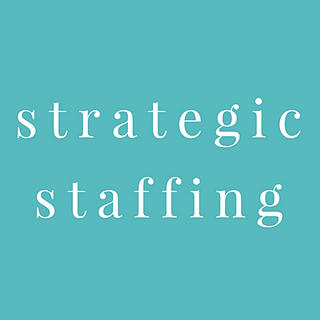Key Ways Coaching Can Boost Your Career
- John Keating, BCC, CPSE
- Jun 29, 2025
- 4 min read
In today's competitive job market, standing out and progressing in your career can be tough. Many professionals are turning to coaching as a way to gain a significant advantage. Career coaching can offer personalized guidance, support, and strategies that elevate your career to the next level.
What is Career Coaching?
Career coaching is a process wherein a trained coach works with individuals to help them clarify their career goals, develop skills, and navigate the intricacies of their career path. It's designed to be a collaborative relationship, focusing on the individual's unique needs and aspirations. Coaches can provide insights that may not be obvious to the person seeking help, offering a fresh perspective and innovative problem-solving techniques.
How Career Coaching Works
Career coaching typically involves a series of one-on-one sessions where clients are encouraged to explore their aspirations, strengths, and areas of development. The coach may employ various assessments, tools, and techniques to facilitate this self-discovery process. This allows clients to set actionable goals and create a personalized career development plan.
For example, a client may initially feel uncertain about their career direction. Through coaching sessions, they might identify their core values and interests, explore new industries, and determine the best steps to transition into a more fulfilling role. The structure provided by a coach can significantly streamline this process.
What are the Benefits of Coaching?
The benefits of career coaching are both tangible and intangible. By investing in coaching, professionals can unlock their potential and enhance their careers in multiple ways. Let’s look at some key advantages:
1. Clarity and Direction
One of the primary benefits of career coaching is the clarity it brings. Many individuals face confusion about their career path, leading to stagnation. A coach can help you clarify your goals and outline a pathway to achieve them. This can be invaluable for career changers or those at a career crossroads.
2. Skill Development
Coaching can identify gap areas in your skillset. Whether it's improving your communication skills or mastering new technologies, a coach can create customized learning plans. As a result, you become more competitive and prepared for the job market.
For instance, a coaching relationship could highlight your strengths in project management while uncovering weaknesses in negotiation skills. The coach can then guide you to training resources or role-playing scenarios to develop these skills.
3. Accountability
Accountability is a significant factor in achieving career goals. A coach encourages you to take actionable steps and holds you accountable for those actions. Having someone to check in with can motivate you to stay on track and maintain focus.
Consider this: a client who sets a goal to update their resume can benefit from knowing that their coach will follow up in the next session. This can serve as a strong motivator to push through procrastination.
4. Networking Opportunities
Many career coaches come with established networks. They can introduce you to invaluable contacts that may assist in your job search or professional development. Networking is crucial for getting access to opportunities that may not be advertised.
Coaches can identify events, workshops, or networking sessions where you can meet like-minded professionals in your field. This can enhance your visibility and potentially lead to job offers.
5. Improved Confidence
Career coaching empowers individuals to recognize their strengths and capabilities, fostering increased self-confidence. With a better understanding of what you can offer, you become more comfortable in interviews, negotiations, and networking scenarios.
A client who learns to communicate their value effectively will feel more confident approaching potential employers or clients. This newfound confidence can be the catalyst for significant career advancements.
Strategies for Choosing the Right Coach
When seeking a career coach, it’s essential to choose one who aligns with your objectives and values. Here are some tips for selecting the best fit:
Research Credentials: Look for a coach with relevant certifications and experience in your industry.
Read Testimonials: Previous clients’ experiences can provide insight into what to expect. Pay attention to their success stories and satisfaction levels.
Schedule a Discovery Call: Most coaches offer an initial consultation. Use this opportunity to gauge their communication style and approach.
Assess Compatibility: Trust your instincts. A good coaching relationship hinges on mutual respect and understanding.
Set Clear Expectations: Clearly communicate your goals and ask how the coach plans to help you achieve them.
Final Thoughts
Investing in career coaching can lead to remarkable changes in your professional journey. From gaining clarity and improving skills to building a network and increasing self-confidence, coaching offers numerous advantages. If you're interested in exploring the career coaching benefits further, consider reaching out to a professional coach who can guide you on your path.
Remember, the only limits on your career advancement are those you impose on yourself. Embrace the opportunity to grow and achieve more than you thought possible. The journey of self-discovery and professional growth is always worth the investment.
By following through with consistent engagement and dedication to your career coaching sessions, you'll not only enhance your immediate career prospects but also develop skills and insights that can benefit you throughout your professional life.





.png)




Comments